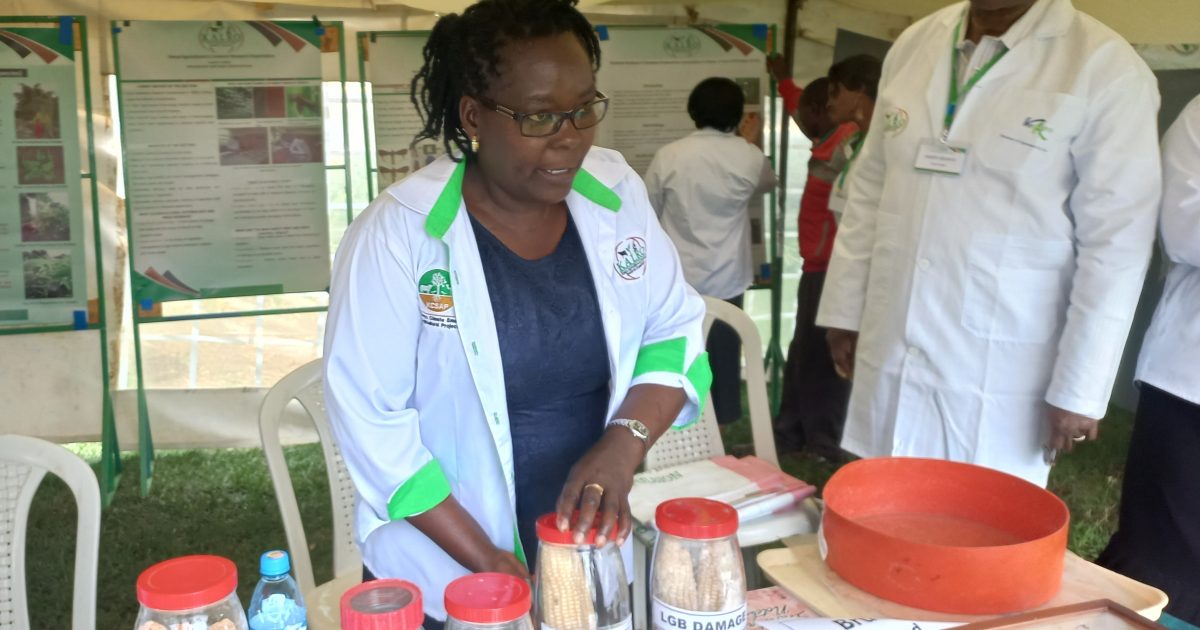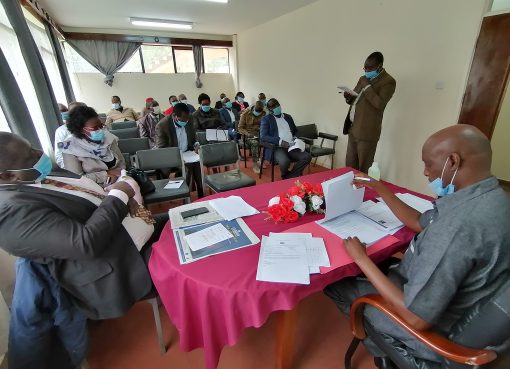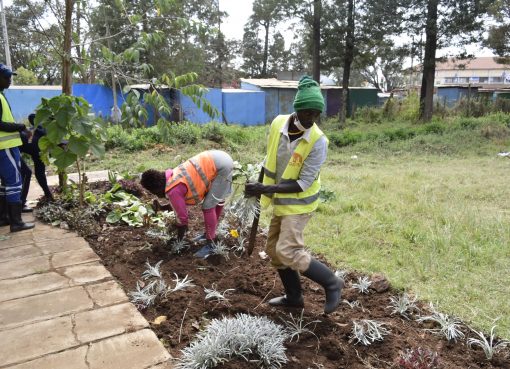In a major milestone in averting the post-harvest losses farmer incurred during storage of cereals that Government Agricultural researchers have developed a pest free gunny bag to address the problem.
The development is expected to reduce wastage occasioned during storage of cereals and improve the income of farmers who opt to withhold their harvest to fetch better prices and at same time guarantees the food and nutritional security of the country during tough times.
Hermetic bags are one of the technologies in the country that has been thriving as a safe and affordable storage method among small holder farmers.
According to Paddy Likhayo, a researcher, Department of Entomology at Kenya Agricultural and Livestock Research Organization, (KALRO), the government has been promoting and educating small scale farmers on the Hermetic storage technology bags to address the issue of post-harvest losses.
Hermetic bags are air tight bags that prevent air or water from getting into stored cereals and are able to preserve the grains restricting the pests by depleting oxygen supply levels and producing carbon dioxide.
“We generally lose production to insect pests more so when we talk about our staple food maize, we lose between 35 to 40 percent of production and yet there are various methods of controlling the pests such as the storage one,” he said.
Likhayo, who was speaking over the weekend during a farmer’s field day at the KALRO- NARL Kabete, noted that Hermetic technologies as an alternative to traditional and chemical control methods have gained significant interest among farmers, the private sector, governments, and the private sectors.
He said that currently there are several used hermetic technologies that include silos of metal and plastic, drums, woven polypropylene bags as well as plastic bags that come in different forms and sizes.
However, Likhayo added that not all of them have been 100 percent as pests such as rodents have become a menace and are able to pierce the bags and thus the cereal ends up being affected by pests.
“Rodents are one of the major storage pests in on-farm maize storage and a significant cause of post-harvest losses with a significant impact on grain safety,” he said, adding that mitigation strategies should include the rodent control measures.

Likhayo told KNA that the emerging technology that KALRO has partnered with the private sector to work on is to develop a plastic liner that is put inside to have the strength of the bag to be impregnated with a chemical that repel the rodents and the rodents will in turn detect these volatiles and move away from the bag instead of damaging it.
“We have already verified the new technologies using farmers in Nakuru, Bungoma, Trans Nzoia and in Nandi counties. We supplied them with over 100 bags and about 60 percent of them have shown that they are repelling the rodents and were not damaged unlike the one the farmers were using. The bags were stored in the stores side by side to show the effects,” he said.
Likhayo noted that using the new technology which farmers will now access from the private sector after it is unveiled in the next one or two months will solve the two problems, one of the rodents and the other of the insect pests.
“The Brand will be known as ‘Rodent Repellent Hermetic bag’ and although it will cost a bit more than the other five brands in the market because of the raw material imported, it will still be within the limit and a farmer will be able to afford,” Likhayo said.
“At the moment the other five brand bags cost between Sh 250 to Sh 300 with a lifespan of three years and the Rodent repellent bag which will be the sixth in the country and has a probability of staying for four years and therefore the cost benefit analysis shows that the hermetic bags are worth investing and will save the country a lot of money spent on importing grains to meet the deficit,” Likhayo said.
On the distribution, the researcher noted that the bags are distributed by the private sector and sometimes the challenge of reaching individual farmers might be challenging but urged farmers to contact manufacturers of the bags and also form groups for easy access and delivery of the hermetic bags.
“KALRO centres all over the country have the new mkulima shops and we will work out on modalities with the private sector on how the farmers can be able to access the bags and also help in distribution easily,” Likhayo said.
The use of hermetic bags to store grain has significantly increased in the past 10 years. The adoption of hermetic bags is driven by factors such as the severity of storage losses at the farm level, the efficacy of the technologies, and other benefits such as being chemical-free, cost effective, easy to use and locally available.
According to experts, the introduction of hermetic bags to the farmers will see them be able to store their harvests for extended periods and utilize them during critical seasons rather than selling their harvests immediately after harvests for fear of associated post-harvest losses
There are only five authorized manufacturers of certified hermetic technology bags namely, Purdue Improved Crop Storage (PICS), ZeroFly Storage Bags, Elite Storage Bags, GrainPro Storage Bags and AgroZ Storage Bags.
By Wangari Ndirangu





